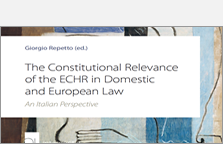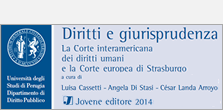CASE OF LOCASCIA AND OTHERS V. ITALY
Abstract
Con la recente sentenza Locascia et alteri c. Italia la Corte europea dei diritti dell’uomo aggiunge un ulteriore tassello alla giurisprudenza che si è interessata dei gravi episodi di inquinamento che si sono verificati negli ultimi decenni soprattutto nell’Italia meridionale. Rispetto ad altri casi precedenti, la Corte ha esaminato e accolto la tesi della violazione dell’art. 8 CEDU (vita privata e familiare) rilevando in tal caso non solo la situazione di degrado ambientale in sé considerata, ma anche la sostanziale assenza di interventi concreti da parte delle autorità locali al fine di contenere gli effetti delle emissioni nocive derivanti dalla mancata raccolta dei rifiuti urbani nelle aree interessate. Tali interventi, infatti, hanno costretto la cittadinanza e le persone a ridurre in modo consistente l’esercizio delle proprie libertà costituzionalmente e internazionalmente garantite. In una condizione di grave esposizione a pericolo per la salute, tali interventi rappresentano un ulteriore elemento che fa emergere la lesione del bene tutelato all’art. 8 CEDU. Alla luce di tali elementi, la Corte ha constatato l’impossibilità da parte sua di attingere al criterio secondo cui la compressione di una libertà tutelata dalla Convenzione può essere valutata alla luce delle esigenze della “società nel suo complesso”, ciò che avrebbe potuto eventualmente consentirle di raggiungere una conclusione differente rispetto a quella contenuta nella sentenza in esame.













